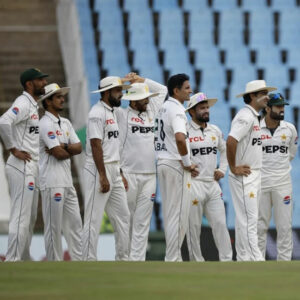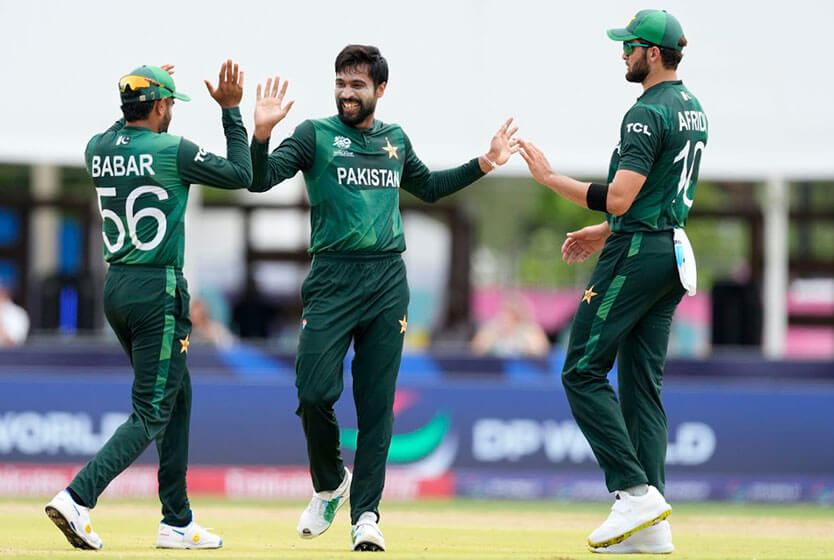
The World of Flexibility
How Pakistan can move forward from the loss to India in the T20 World Cup
It has been more than 72 hours since the event some claim to have been the best T20 encounter ever seen. All things said and done – from criticism and bashing about that controversial no-ball and a couple of wides; some keyboard experts on saving a spinner for the last over; PR machines criticizing the decision not to bowl Iftikhar to two right-handers; professors bashing Haider Ali’s slogs with a cleared front leg while the coaches clapped; Shaheen’s lack of match practice; to not playing a fourth seamer – we move forward. But the question remains, to what and to where? Is the situation as chaotic and doomed as some former cricketers and experts claim it to be?
With all the criticism that has been put on the Pakistan batting, separately on the openers and the middle order, sometimes right, sometimes exaggerated, the truth lies in the fact that we do not have Warners and de Kocks or SKYs and Millers. What we do have are players with glaring weaknesses yet amazing strengths. Success lies somewhere in using resources in a manner to maximize strengths and minimize weaknesses by being flexible in phases.
From here, if Fakhar Zaman is fit and ready, he certainly walks into this T20 side, keeping the conditions of Australia in mind. Cricket is probably the only sport where tactics and strategies can take a 180-degree turn according to the opponents, the venue, the format, and the situation. Despite Shan playing a healthy knock in the first game and the popular opinion of Fakhar replacing Haider if he is to get in, Shan should be the one to make way. This is pretty similar to the CT17 final, where Rumman Raees was dropped when the original player he replaced came back from injury despite his good show in the semi-final. Shan and Haider in this team provide different roles, and one cannot be mixed with the other. If Fakhar replaces Haider, there is hardly any room left for Shan in this side role-wise in the presence of Babar, Rizwan, Fakhar, and Iftikhar.
The other thing that can prove vital, keeping conditions in mind, is the fourth pace option and the fact that finger spinners generally do not enjoy success in Australia. The fourth seamer does not mean a bowling side has to bowl 16 overs of pace but provides cushion to the rest of the bowling line-up, pacers and spinners alike. The five bowling option plus Iftikhar might have been useful in other parts of the world, but in Australia, a team might require another pacer. The answer to that for Pakistan in this squad seems to be Wasim Jr., who provides a minimum risk of decrease in batting depth while replacing a batter and adds quite a bit of quality in the bowling at the death phase as well.
One can argue Wasim should replace one of the spin all-rounders, the finger spinner in particular, especially in the presence of Iftikhar as a second spinner if required, but the fact that Nawaz’s batting provides the necessary balance to the flexibility required to counter the obvious weaknesses in this line-up, he would and should make the cut. This leaves the point to decide between the batters that can cause minimum batting risk when replaced. Asif Ali gives the team an option that is probably unmatched on the Pakistan circuit, while Haider Ali, in comparison to Asif, may just be the most expendable option. Haider’s major strength lies in his spin hitting, but with the middle order already using Shadab and Nawaz for that role, alongside Iftikhar’s confidence-boosting recent assaults on spin, Haider’s exclusion for Wasim might be the least risky option.
Modern T20s have evolved to a point where there is no specific number for a batter; there are phases and situations, and a team has to be flexible to succeed. Despite criticism, Pakistan have used a specialist batter for finishing purposes in the last 2-3 overs and to good effect. Asif Ali might just be a good option for that job in the UAE, the sub-continent, England, or even at the small grounds in New Zealand, but for the bigger grounds in Australia, for him to walk out and do what he has done at the other venues has a low probability.
For Asif to be more effective in Australia, one of the options is that he bats in the powerplay, where he has to clear the infield only to get a boundary. This might also result in Pakistan getting off to quicker starts. His role of getting a small score with a high SR can still remain the same in a different phase to get the maximum efficiency out of a resource. This could mean Pakistan separating their two prime openers, but the fact that Pakistan’s average score always seems to be around 160, with or without Babar and Rizwan always performing, shows that in T20s, you do reach a par score eventually. With Asif opening and Babar at the other end, Pakistan can be flexible with their batting, sending Rizwan if Babar falters and using Fakhar/Nawaz if Asif falls early. If there is a small collapse, Pakistan can go back to taking it deep with Rizwan, Babar, Iftikhar, and Shadab.
Simultaneously, Pakistan can and should continue to use Nawaz and Shadab as low-value wickets and send them in right/left-hand combinations. If Shan had gotten out instead of Iftikhar in the first match, Nawaz probably would have walked out. This is a good strategy for the most part, but while playing in Australia, Nawaz might just be a better batting option than Shadab, meaning he should get preference.
As discussed previously, some things have worked in the past for the team. Keeping the conditions in perspective with an open mind, however, changes can be considered. If they don’t come off, they may not massively impact the team, but if they do, Pakistan will be in a far stronger position.
But those are just my thoughts. I am not a professor, nor do I have a PR team.
The opinions expressed solely belong to the writer and do not necessarily reflect the views of Grassroots Cricket.







Leave a Reply